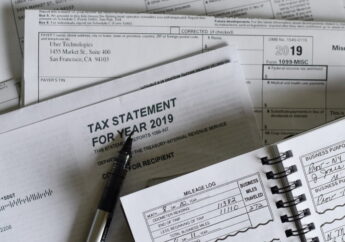Common Reasons Why Taxpayers Get Audited By The CRA
by Arnab Dey Finance 10 February 2023

Whether you’re an individual taxpayer or a business owner, one of the most stressful parts of tax season is the worry that even if you report honestly, accurately, and on time, you may still get a letter from the CRA notifying you that you’ve been selected for an audit.
If that happens, be sure to reach out to one of the experienced Canadian tax lawyers at Taxpage. They’ll provide you with expert advice during your initial conversation, walk you through the process (they offer free consultations) and have a proven track record of successfully representing their clients in audits and in tax court.
It’s a prudent decision to have a lawyer on your side when facing the CRA’s auditors and prosecutors – they know the laws, and it’s their job to find and punish non-compliance.
Why Are Taxpayers Getting Audited By CRA?
The full form of the CRA is Canada Revenue Agency. The federal agency of the administrators has the tax laws which are better for most provinces and territories. The Canadian tax systems are run based on self-assessments, and for every corporation, the taxable amount is taxable for the individual taste.
Taxpayers can be randomly selected for a CRA audit, but, generally speaking, they are often audited for many reasons, including the ones below.
1. Reasons Taxpayers Are Selected For An Audit
There are always very specific types of taxpayers categories that are also considered as high-risk and also not conceding with any of the tax obligations.
They typically include individual taxpayers who have a history of non-compliance, were previously audited, and are self-employed by individuals and taxpayers with offshore assets.
The cash businesses are like wine bars, restaurants, and barber shops or those who are in industries with higher rates of underreporting income and over-inflating expenses.
While technically, anyone can be selected for an audit by the CRA. Returns are typically flagged for the following reasons:
2. A Focused Audit Project To Monitor A Specific Industry
The CRA sometimes randomly selects a small number of taxpayers in a certain industry or demographic to test the amount of non-compliance in that industry or group.
If they find that non-compliance is common within that group during their tests, they may decide to audit more taxpayers from that group.
3. An Item In The Return Trips Of The CRA’s Software
The CRA’s software is designed to find discrepancies in reported income and expenses based on a taxpayer’s previous returns as well as their profession and industry standards.
The CRA software keeps all the records of tax payments. In most countries, the tax is being paid by the software.IT return tips will go through the use of the CRA software. And you will get the chance to track every stage of the IT returns.
4. Information From A Third Party
The CRA sometimes receives an anonymous tip from the public regarding a taxpayer and will usually follow it up. They also receive information from other sources of enforcement agencies.
If any of the taxpayers were taking part in a criminal investigation, for example, they might be referred to the CRA in order to review their tax returns.
5. A Return Is Related To One Which Is Being Audited
If any of the tax returns are selected for audit, another returning scheme that is connected or related to it is likely also to be the audit subject.
All types of CRA returns are calculated under the audit reports. And if you want to have the records related to the tax returns. Then this CRA software is going to work like your auditing book where you are putting all of your records.
Wrapping It Up:
Another method that the CRA uses to find non-compliance with a taxpayer’s return is by assessing their lifestyle and comparing it to the income they’ve reported and to their social media postings.
They will look at the value of their assets, including their home (and other homes in their neighborhood), and if the two are inconsistent, the taxpayer will probably receive notice of an impending audit.
Read Also:



































































































